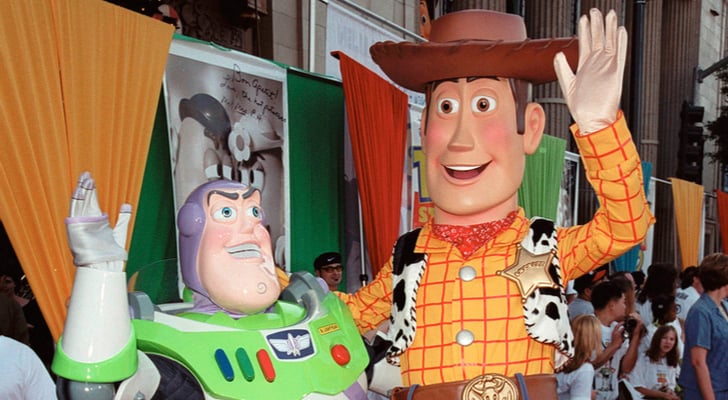After several months of heated words and corporate gamesmanship, it’s finally over. Comcast (NASDAQ:CMCSA) pulled out of its bidding war for Twenty-First Century Fox (NASDAQ:FOXA), handing Walt Disney (NYSE:DIS) a key victory. Both Comcast and Disney stock moved higher on the news, a fitting tribute to demonstrate Fox’s importance to the competitors.
In Comcast’s concessionary statement, the company announced that it will now focus on acquiring British media giant Sky (OTCMKTS:SKYAY), which always has been Comcast’s number-one goal.
CEO Brian Roberts subtly reiterated this point, personally congratulating Disney boss Bob Iger, as well as Fox’s Rupert Murdoch. As The New York Times suggested, Roberts might be signaling concession for Fox in exchange for Sky.
A Shift in Perspective
It’s a remarkable shift in tone from a month earlier. Since DIS disclosed its intention for Fox, most observers, including Fox’s board, believed Disney was the right deal. Primarily, it was a safer bet as a Comcast bid would almost surely run into regulatory issues.
But a federal court clearing the way for AT&T’s (NYSE:T) Time Warner takeover bid changed the calculus. Sensing a critical opportunity, Comcast raised its all-cash bid from $60 billion to $65 billion. That forced DIS executives to counter with a $71.3 billion offer, which comprised of a 50/50 mix between cash and stock.
The house that Mickey built originally offered $52.4 billion, all in Disney stock.
Although the Magic Kingdom technically has a clear road ahead of it, Comcast did its damage. Because the company now had to offer cash in addition to Disney, its balance sheet will take a hit. Currently, its cash-to-debt ratio ranks lower than 79% of international-media firms.
But overall, Iger and company will be relieved to get this deal squared away because of what the acquired Fox assets bring.
Disney Stock Is Now a “Big Media” Moat
One of the biggest challenges impacting Disney specifically, and media companies generally, is the cord-cutting phenomenon. People consume entertainment content much differently today than they did 10 or 20 years ago.
I’m not just referring to the disruptive impact of streaming companies like
Netflix (NASDAQ:NFLX). Cord-cutting is also a behavioral trend. Disney’s big miss is of course its sports network ESPN. Whether you’re talking traditional favorites like football or somewhat niche interests like NASCAR, sports viewership has tanked.
That’s part of the reason why Disney stock has been flat for the last three years. However, with Fox’s entertainment assets, DIS shareholders can likely look forward to consistent capital gains.
For one thing, Disney now has a controlling stake in Hulu, allowing it to compete in the streaming entertainment sector. Moreover, the deal includes Fox’s award-winning studios such as FX Networks, which produced the grossly underrated gem The Americans. With Disney’s marketing firepower, the term “underrated” will be extinguished from the dictionary.
More critically, DIS now levers a moat at the box office. Cord-cutting hasn’t just impacted the small screen, but the big screen as well. But that’s not to say that movies are now unprofitable; studios just have to release the right kind of movies.
And what exactly is the right kind? Essentially, it’s anything that the Magic Kingdom produces. Of the top-five biggest grossing movies last year, Disney’s Buena Vista studios produced three titles. Invariably, the most popular films are science-fiction or fantasy fare, and usually related to comic books.
That’s a far cry from the turn of the century, when the Paramount release “What Women Want” rounded out the top five.
Fox Handed Disney a “Monopoly”
Federal regulators obviously didn’t look at it this way. However, in my opinion, the Fox deal provides DIS with a virtual media monopoly.
Moving forward, the box office’s top billings will feature nothing but Star Wars, X-Men, and possible Avatar sequels. If you’re a comic-book fan, obviously, you’re not going to complain. But other than Warner Bros.’ DC Comics-related films, and perhaps the occasional hit from Sony (NYSE:SNE), Disney will rake in perpetual greenery.
Sure, the last Star Wars film bombed, but Disney isn’t likely to miss twice. Plus, the sci-fi, comic-book film category has proven resilient and extremely lucrative. Just look at Avengers: Infinity War and Black Panther, which are currently the top-two highest grossing films of this year.
With incredibly popular movie franchises under its belt, DIS owns the big screen. And it also has a better chance to compete in cordless entertainment, ultimately making Disney stock a more compelling opportunity.
As of this writing, Josh Enomoto is long SNE.

